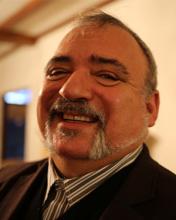What Is It
Torture is prohibited under international law and is widely considered a human rights violation. But despite the fact that 157 countries ratified the UN Convention Against Torture, it is still practiced in many states to this day. Moreover, while we might associate torture with dictatorships, liberal democracies pioneered the modern techniques that leave no physical trace. So why do democracies torture? Can calling torture by other names, such as “enhanced interrogation,” really resolve the deep conflict between what we say and what we do? Or has the taboo against torture finally been broken? John and Ken enhance their interrogation of Darius Rejali from Reed College, author of Torture and Democracy.
Listening Notes
Does torture have a place in democracy? It’s a polemic question, but hosts John Perry and Ken Taylor decide to dive right in, and get at what the philosophy of torture in a democratic society. John starts things off: is torture ever acceptable? Though the concept may be repugnant, the hosts postulate situations where perhaps torture might be acceptable: namely “ticking-bomb” situations, where thousands of people’s lives might be in danger. After some debate, Ken shifts the debate to questioning what exactly torture looks like in a liberal democracy.
After taking a break for Shuka Kalantari to deliver the Roving Philosophical Report, John and Ken welcome Darius Rejali—a professor of Political Science at Reed College—to the show. Rejali describes growing up in Iran, and living in a society where torture was used routinely. He goes on to contend that torture is an abusive political power, and denies the human rights that protect citizens from their state. Ken asks Rejali if it’s specifically worse when democracies torture, and the three professors discuss Rejali’s book “Torture and Democracy.” The three also discuss how torture remains distinct from other types of coercion (like prison time and money offers), and whether or not torture is effective.
Ken, John and Darius then take questions from callers, beginning with a inquiry from a former army reservist about whether or not anyone would hesitate to torture if it meant saving a member of one’s own family. The three talk about whether or not torture used in times of war is more acceptable than torture used as part of the state’s police power. After more talk, Ken questions whether or not “rational” talk an philosophizing can ever really affect whether or not we regard torture as acceptable, as the decision to torture is often made in situations inimical to rationality. The show concludes with an invitation for listeners to share their views on torture on the PhilosophyTalk.com.
Roving Philosophical Report (Seek to 6:50): The Roving Philosophical Reporter investigates torture what looks like in the United States—the land of the free and the home of the brave. Shuka Kalantari details the brutal torture of a Mauritanian man currently imprisoned in Guantanamo Bay—a persona who has never been charged with a crime.
60-Second Philosopher (Seek to 46:50): The Sixty-Second Philosopher Ian Sholes mediates about the historical ubiquity—and continual ineffectiveness—of torture around the world.



